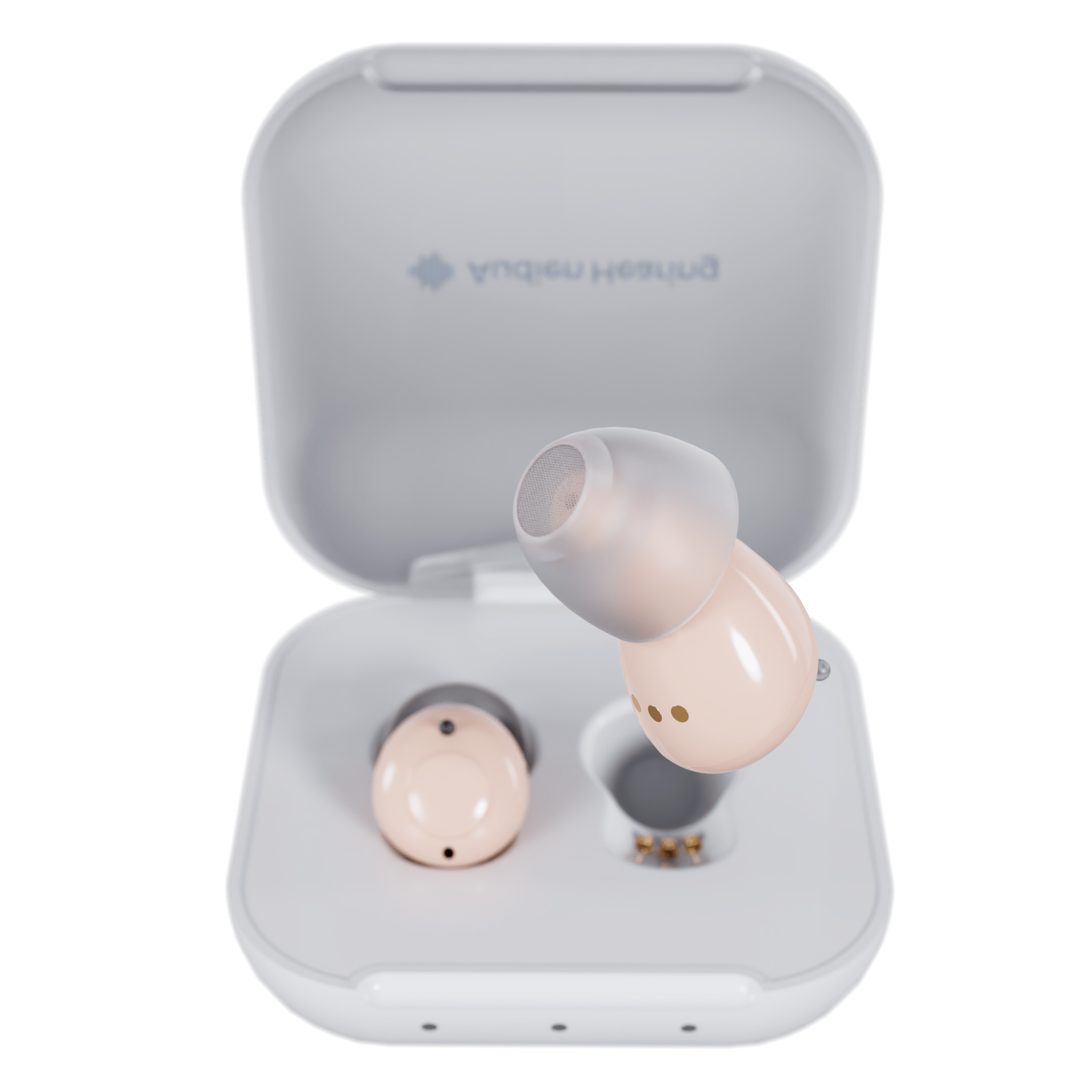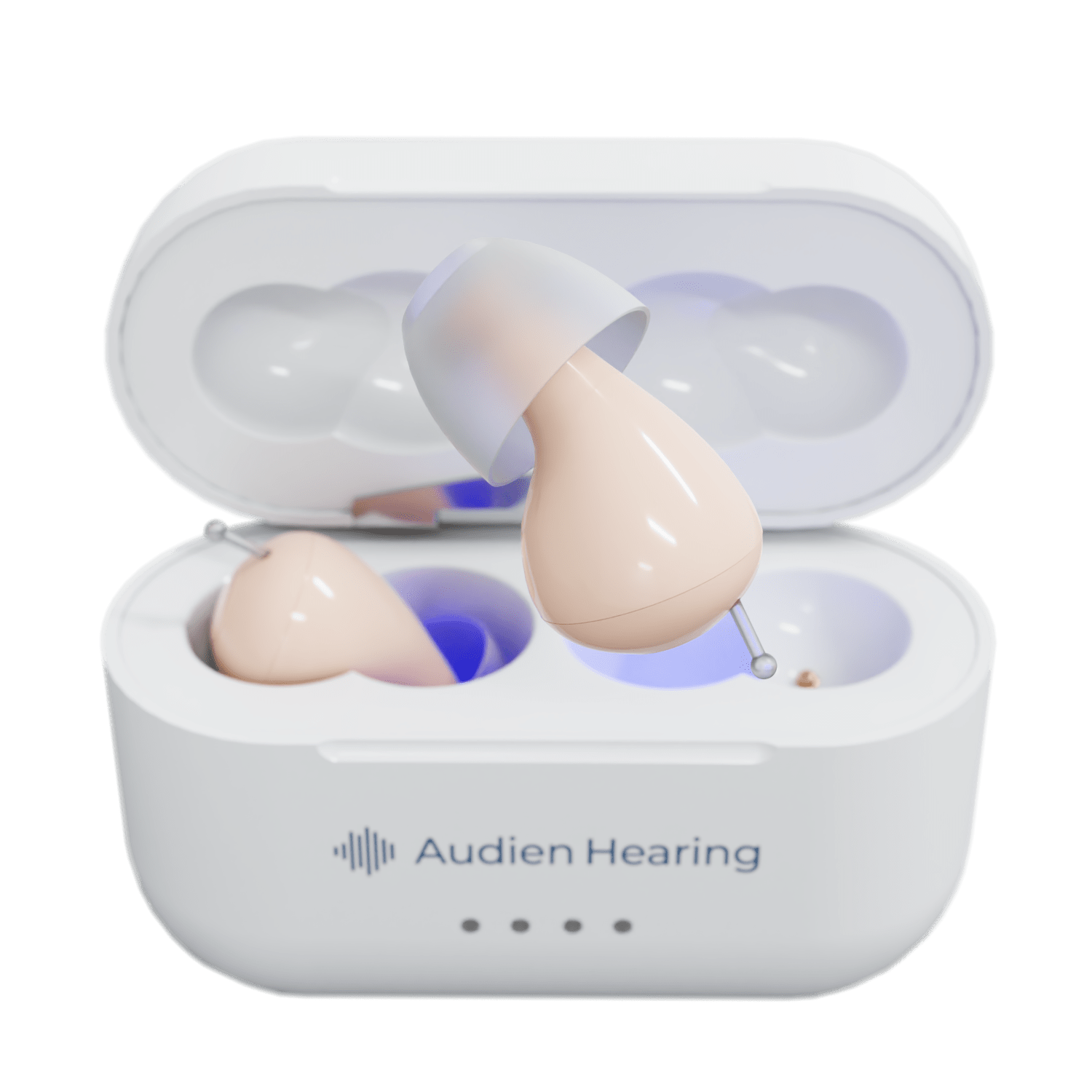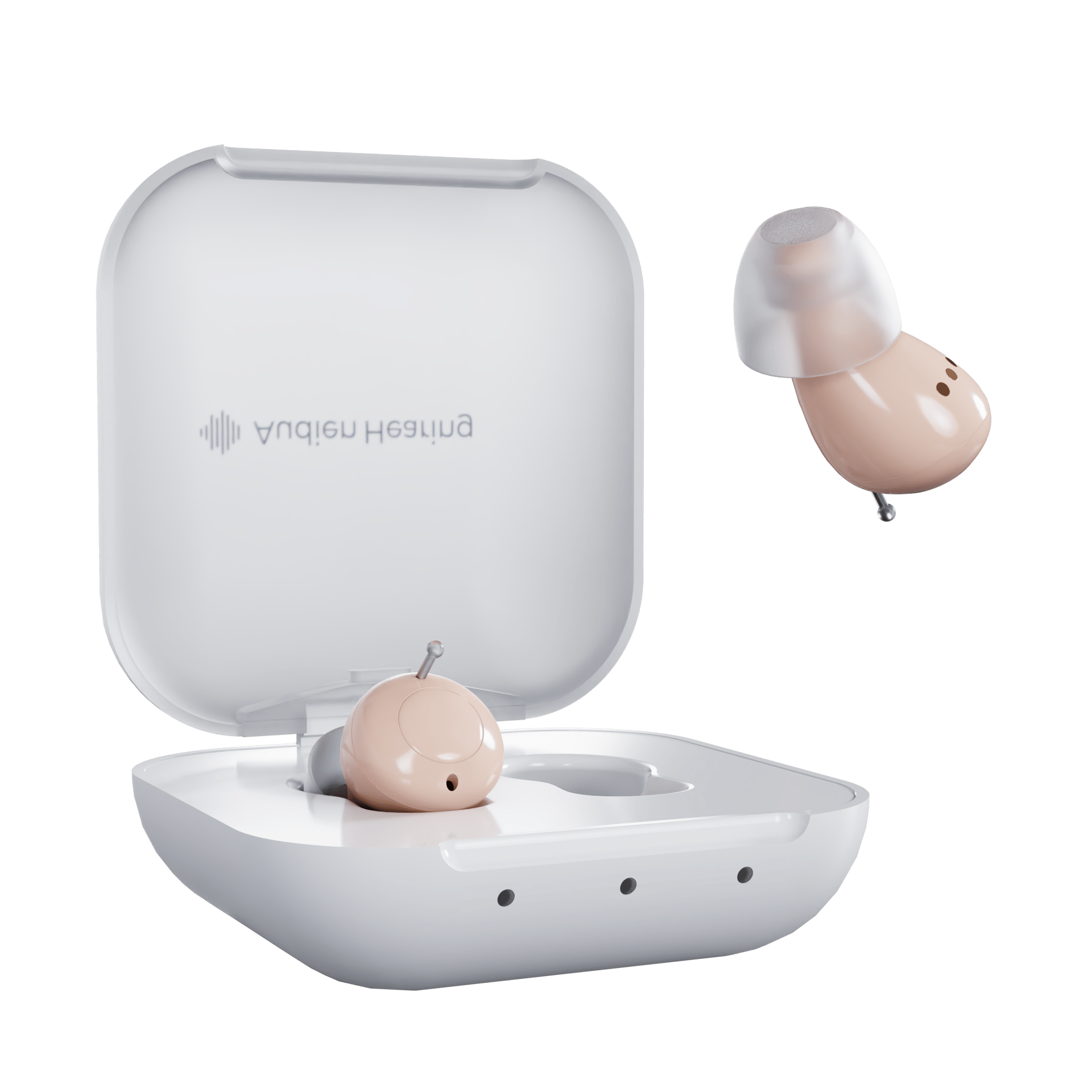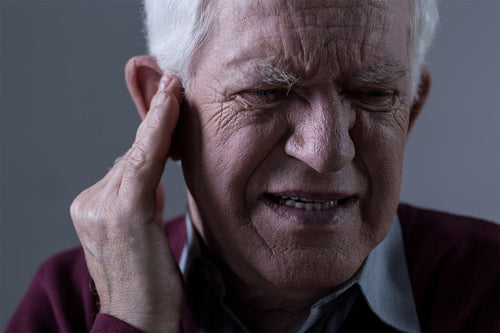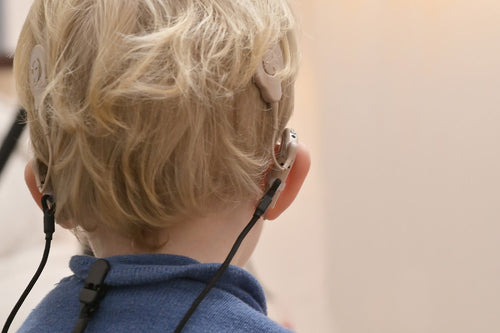
The buzz just won’t get lost. That irritating high pitched ringing sound in your ear has been there for years and won't stop.
You know it’s a sign of tinnitus, but you’re wondering how long it’s supposed to last and if it will just go on its own after all these years.
Most times, it’s really easy to know when something’s not right with your ears. Hearing loss is an obvious giveaway, but even the slightest pain could also be a pointer that there’s a problem somewhere.
However, some cases are very noticeable and challenging to live with, which certain types of tinnitus fit into.
Knowing that you’ve got tinnitus isn’t a pleasant experience. Suddenly, you hear unexplained sounds in your ears that aren’t coming from an external source. And these noises don’t go away as they usually would. Instead, it’s continuous, even when you’re trying to sleep at night.
Hence, after many years of having this condition, you wonder if tinnitus can simply just vanish after years of having it.
So we’ll try to provide some answers to your questions. But before that, let’s see what causes tinnitus as it holds the key to the answer.
What are the Causes of Tinnitus?
Before we get into how long your tinnitus will be around, it’s a great idea to determine what is responsible for it.
In most cases, the cause can determine how long it’ll last and is something that you can fight against, and this cuts down the symptoms of tinnitus for those who it's affecting their quality of life or stops it from causing further damage.
Exposure to Loud Sounds
If your ears are exposed to loud noises frequently (like spending hours daily listening to loud music with earbuds or headphones), you may want to hold yourself back a bit from such habits because it’ll harm your ears.
Usually, most people don’t notice the effects of loud noises right away because it at first results in a temporary inconvenience (lasts for just a few minutes or sometimes a day).
For example, it’s not far-fetched to experience symptoms of tinnitus after a loud live music concert. As you leave the concert location, you may notice some sort of humming coming from your ears - usually high-pitched.
This should be treated as a warning, and most times, such ringing will pass; however, it shows that you may need to use ear protection for such events in the future. But the damage may be done already if you’ve been exposed for a long time.
As the hair cells in your ears can get negatively impacted by continuous exposure to loud sounds; and this can result in tinnitus.
Loss of Hearing

If you experience a hearing loss of any type, it can lead to tinnitus. This means you must visit an audiologist for both the hearing loss and tinnitus problem. But before you can treat tinnitus, you need to have the hearing loss problem handled.
That said, the most common tinnitus cause is the loss of hearing. And based on your specific condition, you can fix the problem from its root (the hearing loss) and prevent the unwanted noises that result from tinnitus.
Removing affected earwax, for example, helps restore your hearing and indirectly assists in the elimination of tinnitus symptoms.
In other scenarios, as you grow older, you may have a loss of hearing, and as this happens, your tinnitus symptoms get more evident because there are no external sounds to mask them.
When specific tinnitus symptoms show up, check out your hearing with an ENT physician to ensure you don’t have any underlying loss of hearing problem.
Exposure to Stressful Conditions
More and more people are going from day to day under stressful conditions, undergird by anxiety. However, not a lot of them know that such situations can result in tinnitus.
This situation is a bit delicate because when the ringing and whoosh sounds begin, it leads to more stress and anxiety, making the condition worse.
And even if you've learned to ignore tinnitus sounds over the years, your brain can subconsciously decide that the noise is a threat, which triggers more irritability, stress, and anxiety, making the sound much more evident.
Audiologists usually recommend sound-canceling techniques in such situations as white noise to reduce the symptoms.
Infections
Ear infections can seriously affect how you hear both when they’re present and even after they’ve been cleared out. Therefore, it’s essential to visit an audiologist immediately if you feel any form of a painful sensation in your ears, as such conditions can most times get worse until they’re fixed.
Such ear infections can cause you to experience specific tinnitus symptoms when not handled on time. However, in this case, the tinnitus symptoms are usually temporary but ensure that the ENT doctor solves the underlying reason for the ear infection.
Excess Earwax

Some individuals create more earwax than others do, which often results in excess earwax that blocks your ear channels. There are so many ways you could handle this. Still, it’s always best practice to speak with an audiologist before trying to take on it solo as the doctor can always help you remove the excess earwax, which should reduce your tinnitus symptoms.
If it does not, then it’s likely that there’s something else causing the tinnitus problem.
Perforated Eardrum
Tinnitus can happen because of a perforated eardrum, which occurs for various reasons such as pressure change due to driving or flying, infections, and loud sounds.
So if you believe that your eardrum is damaged, get medical advice from an ear specialist doctor. And as soon as your eardrum is fine, you’ll notice a drop in the tinnitus symptoms.
Blood Vessel Problem
If you’re able to hear your heartbeat, it’s a symptom that your tinnitus results from blood vessel problems like blockages or high blood pressure. In such situations, ensure you seek help from a medical professional as it can lead to other significant health challenges.
Normally, How Long Does Tinnitus Last?
There’s no cure for tinnitus. But that doesn’t imply that it can never go away. The length of your tinnitus depends on a considerable number of factors, like the underlying reason for your tinnitus and your general health.
However, if you just came home from a day filled with the noise of traveling, for example, and you notice that your ears are ringing, a few days later should be enough time for your tinnitus to go away.
Typically, tinnitus will last between 16 to 48 hours. But in certain situations, symptoms will last for as long as a few weeks. And if you’re exposed to loud sounds again, it will come back.
If it continues and affects your life quality, you may have to visit a specialist.
Why is Tinnitus Permanent Sometimes?
Most times, tinnitus is temporary, which means it can be irreversible, sometimes mostly, if the cause of tinnitus is beyond mundane reasons in terms of severity and origin.
Let’s see some examples of the origin of permanent tinnitus:
Hearing Impairment
Hearing loss and tinnitus go hand in hand, often. So regardless of the origin of your loss of hearing, you may notice that you’re developing permanent tinnitus alongside it.
Continuous Exposure to Loud Sounds
As we’ve already seen, loud noises are detrimental to your ear’s health and usually just ring for a couple of days and go away. But if you are continuously subjected to such loud sounds, you can experience irreversible damage to your hearing, with which tinnitus is included.
Traumatic Brain Injury
A considerable portion of sound processing happens in your brain. And if those processors misfire because of traumatic brain injury, it can result in permanent tinnitus.
While short-term tinnitus is a common problem, there are still millions of people who have been treated for chronic, lasting tinnitus symptoms.
How Can I Get My Tinnitus to Subside?
Regardless of if your tinnitus is long term or short term, you would want to get rid of it as quickly as possible. Even though there isn’t any known cure for tinnitus, you can still do certain things to cut down the symptoms (irrespective of how long it has lasted):
Wear EarMuffs or Earplugs

If you’re unable to avoid loud environments, your next move is to protect your ears. And even if you don’t suffer from tinnitus, you still should protect your ears in such loud locations.
Stay Clam
This may seem a little abstract, but staying calm helps put your tinnitus in check, as it lowers blood pressure, which stimulates tinnitus flare-ups.
Mask the Noise
You can drown out the tinnitus noise and get a beautiful sleep at night using white noise sources like a humidifier or fan.
Avoid Loud Sounds
This point can’t be overemphasized because if you keep overexposing yourself to loud sounds, your tinnitus can become worse or even more intense.
That said, none of the above methods will eliminate permanent tinnitus. But can help you in controlling and minimizing the symptoms that affect the quality of your life.
Can Tinnitus Go Away After Years of Having it?
For some individuals, tinnitus is transient. Their brain hallucinates certain sounds for some time, but it vanishes before returning. This means that Tinnitus is susceptible to flare-ups, which may be better or worse.
However, there are situations where tinnitus simply doesn’t go away, even if the problem stems from the loss of hearing, and you wear hearing aids for treatment.
For such types of tinnitus, medical practitioners created various techniques designed to control the disease.
Of which the most popular treatment is called cognitive-behavioral therapy. This treatment’s goal isn’t to eliminate the origin of the tinnitus but to give the patient a better attitude.
Therapists who conduct such sessions offer techniques to manage the response (mentally) to tinnitus. Patients are taught to make peace with tinnitus and not see it as a bad thing.
Not all of such sessions are successful. And for some individuals, tinnitus remains a burden for life. So the best approach to controlling tinnitus after it hasn’t gone away for years is to mix treatments like wearing hearing aids that have white noise features and attending counseling sessions at the same time.
That said if you’ve had tinnitus for years, ensure that you visit a medical specialist because, most of the time, it won’t go on its own.
You must visit an audiologist or ENT doctor to find out the origin of your tinnitus so they can fix it. If there isn’t a treatable cause, they can give you techniques to manage the symptoms.
If Tinnitus is Incurable How Does Visiting a Medical Specialist Help?
Based on some causes of tinnitus we saw in the sections above, here are a few ways medical specialists will help you handle the tinnitus problem.
Ear Infections
Suppose your tinnitus is caused by an ear infection, a perforated eardrum, or earwax buildup. In that case, it can only go away after years of having it if you visit a medical specialist to treat the underlying issue. And not by itself.
This could be taking antibiotics to remove the infections or have the specialist syringe your ears to remove the wax buildup. Once the root problem is handled, you’ll see that the tinnitus will go away.
Blood Vessel Problem
For tinnitus that stems from a blood vessel problem, taking medically recommended steps to lower your blood pressure and get rid of blockages in your blood vessels will help cut down the symptoms of your tinnitus.
Ear Damage From Loud Sounds or Loss of Hearing
In situations where your tinnitus results from damage to your ears because of overexposure to loud sounds or loss of hearing, your tinnitus may be irreversible. In such cases visiting a medical specialist will help you find ways to control the symptoms.
Doctors would likely prescribe wearable devices, like hearing aids that’ll help you mask the humming or ringing noises and make them less evident.
Certain medications may also help, but they come with side effects and shouldn’t be used often.
Are any Over-the-Counter Tinnitus Treatments Reliable?
No. With Tinnitus, over-the-counter drugs and herbal remedies are unreliable and will not work. There’s no credible scientific evidence that shows that such substances have a meaningful impact on tinnitus.
This includes Lipoflavinoid, which hasn’t received approval from the FDA to treat, prevent, or cure tinnitus.
Most of such products are multi-vitamins. So be wary of any success story attached to them. When people use over-the-counter treatments, it clashes with the natural relief, which makes them think that it worked.
Short-term placebo effects can also make a person believe that ineffective treatments work.
Conclusion
So can tinnitus go away on its own after having it for years? In most cases, no. You will need to visit a doctor to discover the cause of the problem, and if the cause is treatable, then the symptoms of tinnitus will be dealt with, but if the reason isn’t, the doctor will show you ways to manage it. To learn more about all things hearing loss and Tinnitus visit us at Audien Hearing today.
